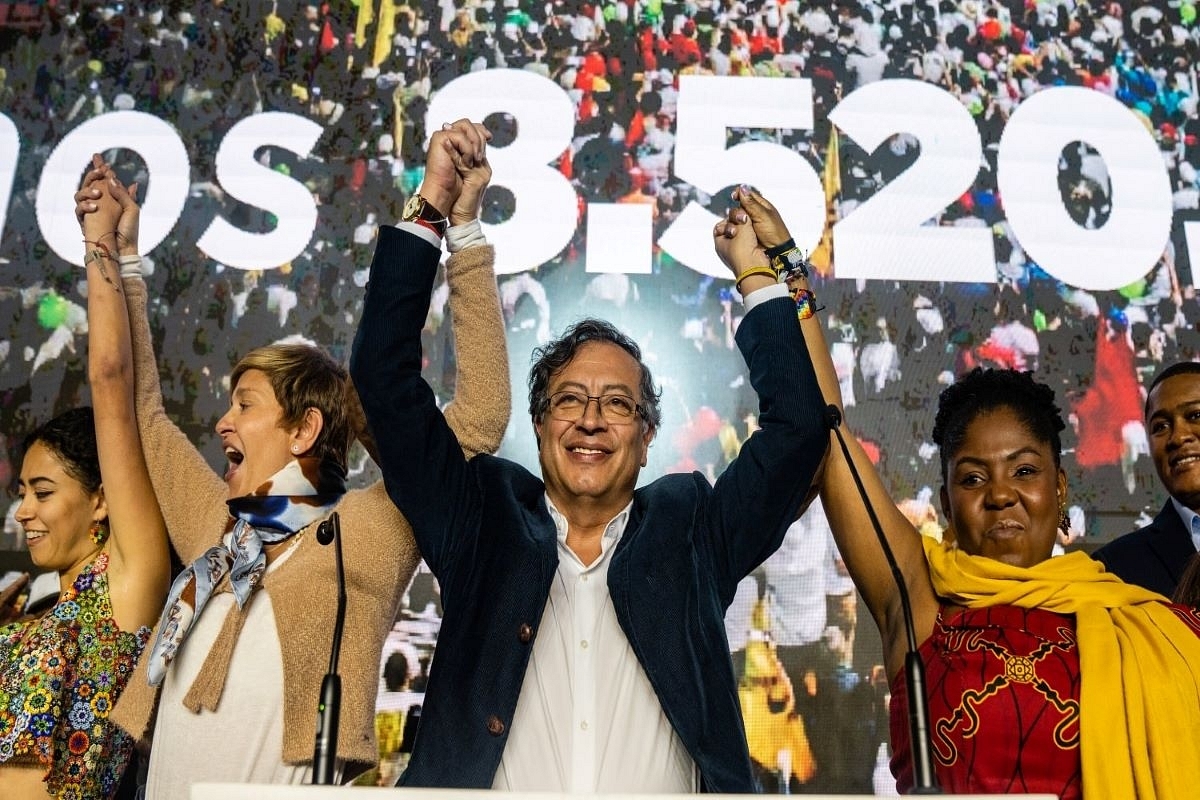News Brief
Colombia: Gustavo Petro, A Former 'Urban Naxal' Who Was Jailed During His Days As Guerilla Leader, Elected President
- Gustavo Petro, Colombia's president-elect was once a member of M-19 guerilla movement and was granted amnesty after being arrested and jailed in 1985 for illegal arms possession.
- Petro's successful presidential bid in his third attempt adds the Andean nation to a list of Latin American countries that have elected left-wing leaders in recent years.

Gustavo Petro
A leftist president will govern Colombia for the first time after a former left-wing guerilla leader Gustavo Petro narrowly defeated a real estate millionaire in a runoff election that underscored people's anger with the country's entrenched political establishment.
The president-elect was once a member of M-19 guerilla movement and was granted amnesty after being arrested and jailed in 1985 for illegal arms possession.
Petro, who was a former mayor of the capital Bogota, beat Rodolfo Hernández, a former construction tycoon, winning 50.5% of the votes while Hernández polled 47.3%.
Petro's successful presidential bid in his third attempt adds the Andean nation to a list of Latin American countries that have elected left-wing leaders in recent years.
Chile, Peru, and Honduras elected leftist presidents in 2021, and in Brazil, former President Luiz Inácio Lula da Silva is leading the polls for this year's presidential election.
The vote is also resulting in Colombia having a Black woman as vice president for the first time. Petro's running mate, Francia Márquez, 40, is a lawyer and environmental leader whose opposition to illegal mining resulted in threats and a grenade attack in 2019.
Key Election Issues
The election was fought in the background of Colombia's struggle with rising inequality, inflation, and violence — factors that led voters in the election's first round last month to punish long-governing centrist and right-leaning politicians and pick two outsiders for the runoff contest.
Although Colombia's per capita GDP grew from $1,400 in 1990 to $6,700 by 2018, and the country joined the ranks of OECS in 2021, a club mostly of wealthy economies, the progress was marred by increasing inequality, unemployment and violence.
Pedro has promised a radical rehaul of Colombia's economic model. He has pledged to ban oil exploration, open-pit mining and fracking despite Colombia being the second-largest exporter of oil and petroleum in South America. Oil accounts for nearly half of exports and close to 10% of national income.
Pedro also has vowed to fight inequality with free university education and pension reforms. H plans to impose a wealth tax on large land holdings and repeal liberalised labour laws.
Petro is willing to resume diplomatic relations with Venezuela, which were halted in 2019. He also wants to change Colombia's relations with the US by seeking a renegotiation of a free trade agreement and new ways to fight drug trafficking.
Call for unity
Petro issued a call for unity during his victory speech on Sunday night and extended an olive branch to some of his harshest critics, saying all members of the opposition would be welcomed at the presidential palace "to discuss the problems of Colombia".
"From this government that is beginning there will never be political persecution or legal persecution, there will only be respect and dialogue," he said, adding that he will listen to those who have raised arms as well as to "that silent majority of peasants, Indigenous people, women, youth".
(With inputs from PTI)
Support Swarajya's 50 Ground Reports Project & Sponsor A Story
Every general election Swarajya does a 50 ground reports project.
Aimed only at serious readers and those who appreciate the nuances of political undercurrents, the project provides a sense of India's electoral landscape. As you know, these reports are produced after considerable investment of travel, time and effort on the ground.
This time too we've kicked off the project in style and have covered over 30 constituencies already. If you're someone who appreciates such work and have enjoyed our coverage please consider sponsoring a ground report for just Rs 2999 to Rs 19,999 - it goes a long way in helping us produce more quality reportage.
You can also back this project by becoming a subscriber for as little as Rs 999 - so do click on this links and choose a plan that suits you and back us.
Click below to contribute.
Latest